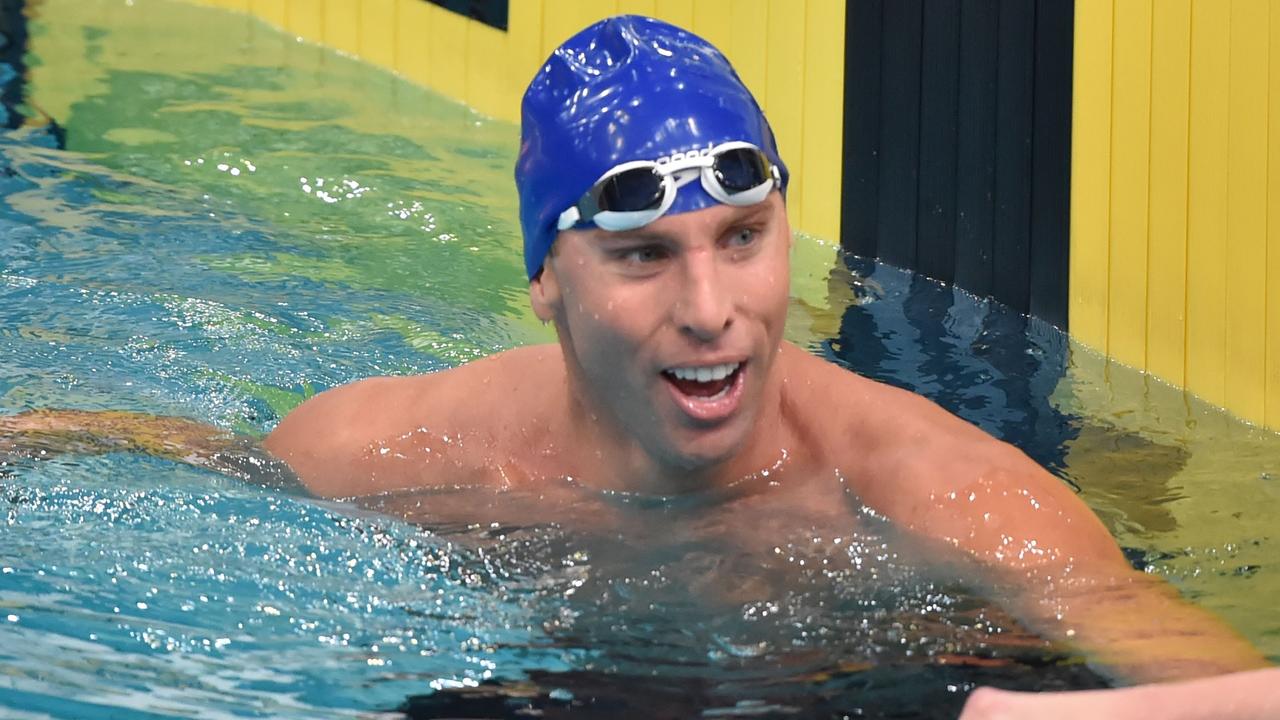Rio de Janeiro is facing a monumental task to be ready for the 2016 Olympics
THE Olympics is a time for celebration, but next year’s games in Rio could be a complete debacle because of the city’s massive problems.
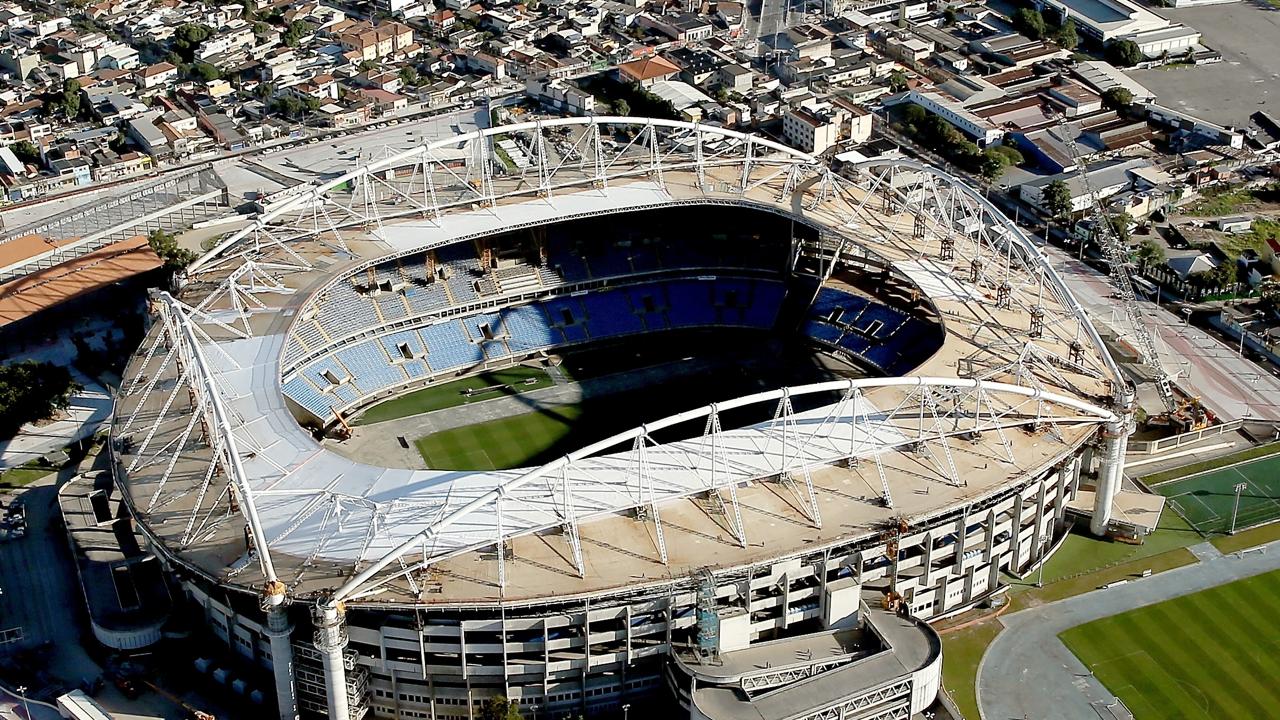
WITH just under a year to go until the start of the 2016 Olympics in Rio de Janeiro, Brazilian authorities face a mammoth task in preparing the city to host the world’s showpiece sporting event. Here’s why.
1. CRIME
SO fearful are organisers of Rio’s high crime rate they are deploying 85,000 security forces on the ground, more than double what was used for the London Olympics in 2012. The city sees more than three murders a day and is experiencing its highest level of street robberies in more than 20 years, making it difficult to attract tourists. British sailing world champions Hannah Mills and Saskia Clark experienced crime problems at Guanabara Bay first hand earlier this year when they returned to land after a training session only to be robbed by two men wielding knives.
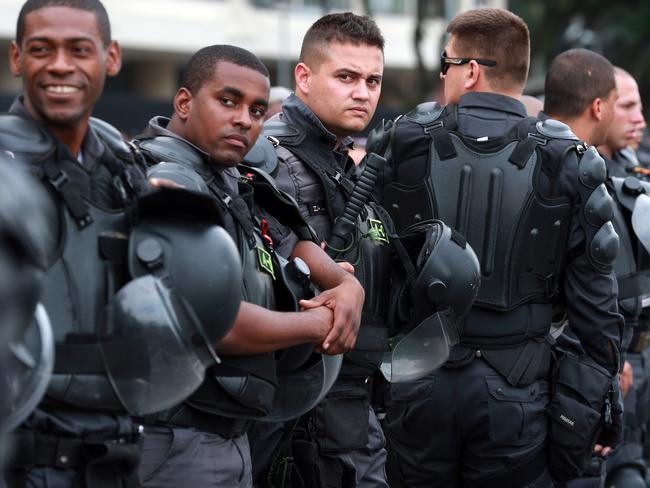
2. SOCIAL UNREST
WHILE the physical construction that comes with hosting an Olympics is what the world will eventually see, what remains invisible on TV screens is the hidden human cost of such development. Roughly 8000 families living in favelas — slums on the outskirts of Rio de Janeiro — will have been removed from their homes to accommodate new construction projects by the time the event starts. Jane Nascimento de Oliveira is a resident in one of Rio’s favelas, and she told The Guardian that “I feel totally excluded. The Olympics has just brought the destruction of my home. The stress has made me sick”. Reminiscent of scenes prior to the 2014 Football World Cup in the Brazilian capital, there have been mass demonstrations in recent months protesting against the government’s preparations for the tournament.
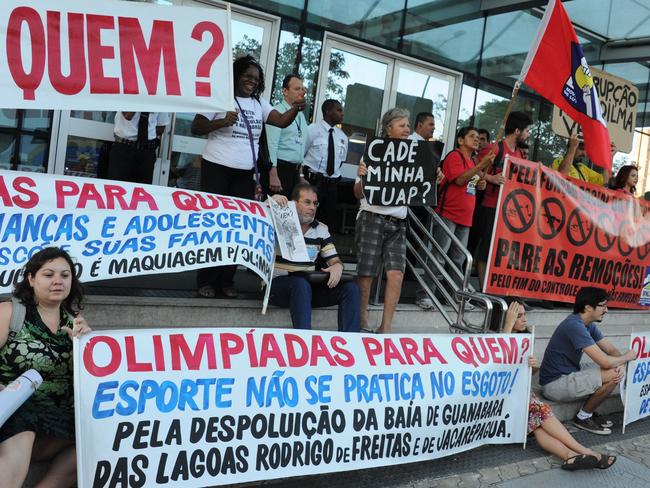
3. POLLUTION
MUCH of the waste and sewage in Rio goes untreated and runs into Olympic water venues that are littered with floating rubbish, household waste and even dead animals. A recent AP investigation into the city’s water quality revealed dangerously high levels of viruses and bacteria in all of Rio’s Olympic water venues, posing a serious health risk to competitors. Of particular concern is pollution in Guanabara Bay, the host site for sailing and windsurfing events, and the Rodrigo de Freitas lake which will host rowing and canoeing events. Despite promising to clean up Guanabara Bay by 80 per cent, Brazilian authorities are nowhere near achieving that goal. Water pollution was blamed for 13 American rowers becoming violently ill with nausea and diarrhoea on Monday after competing at the World Junior Rowing Championships — a trial run for next year’s Summer Olympics. The claims were strongly denied by Brazilian organisers. “There is absolutely no evidence to link the water quality and the illnesses,” Philip Wilkinson, a spokesman for the Rio2016 organising committee, told AFP.
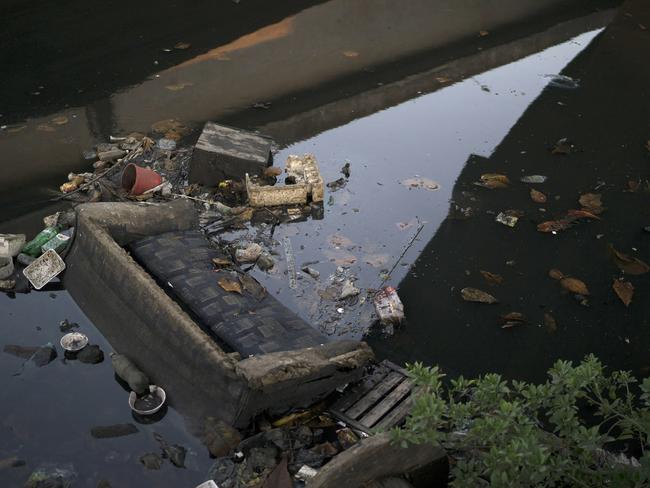
4. WATER AND ENERGY CRISIS
UP to 75 per cent of Brazil’s power comes from hydro-electric sources, which is a major problem because the country is currently experiencing its worst drought in 40 years. The Minister of Mines and Energy Eduardo Braga admitted earlier in the year that hydro-electric plants would stop functioning if water levels dropped below 10 per cent capacity, an alarming statement given they were sitting at 17 per cent when he made the revelation. Brazil has already experienced rolling power cuts, while Sao Paulo has started rationing water, and Rio may not be far behind.
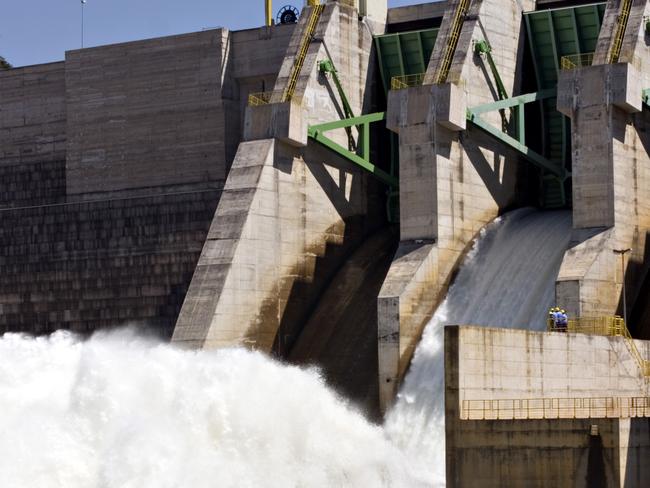
5. INFRASTRUCTURE
WHILE it seems that concerns over infrastructure appear before every Olympics, Rio’s problems are worse than usual. Progress on the city’s new metro line built specifically to link the Olympic Park to the city centre is well behind schedule, with fears the project won’t be finished on time. Many of the 14 venues being built are also nowhere near completion, with some still resembling building sites and empty quarries. The biggest concerns are for the velodrome, tennis centre and aquatic park, which are the furthest behind schedule.
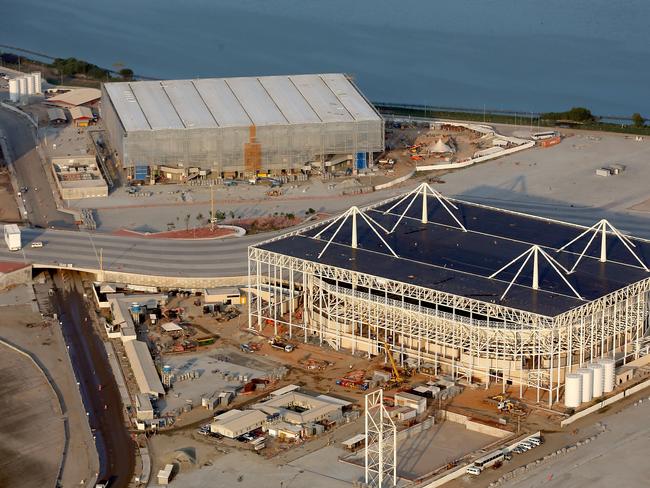
— with AP & AFP




